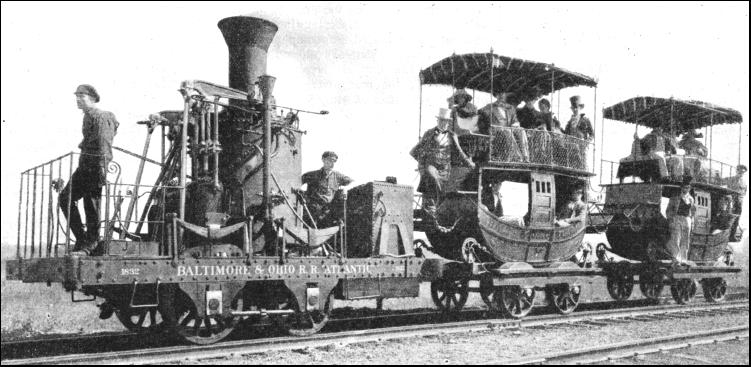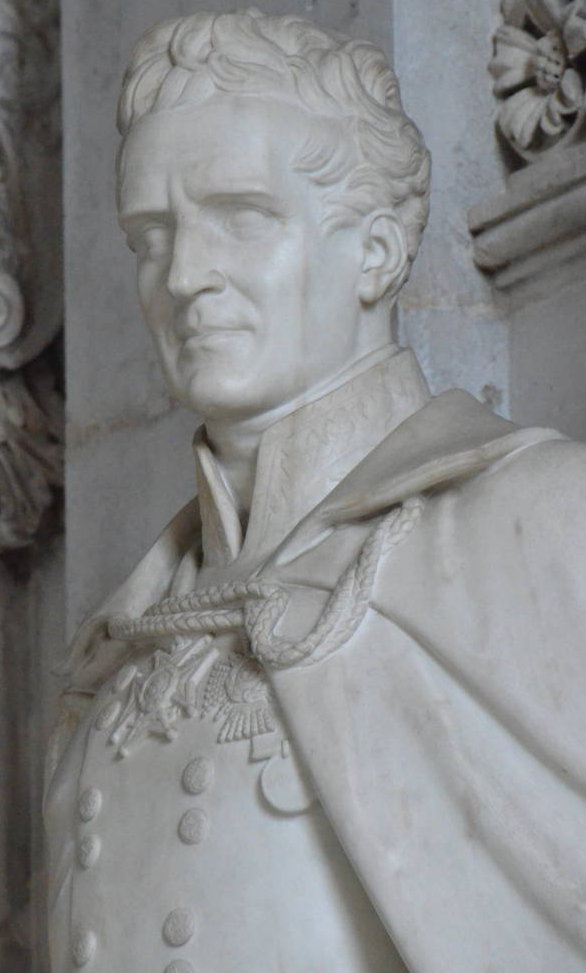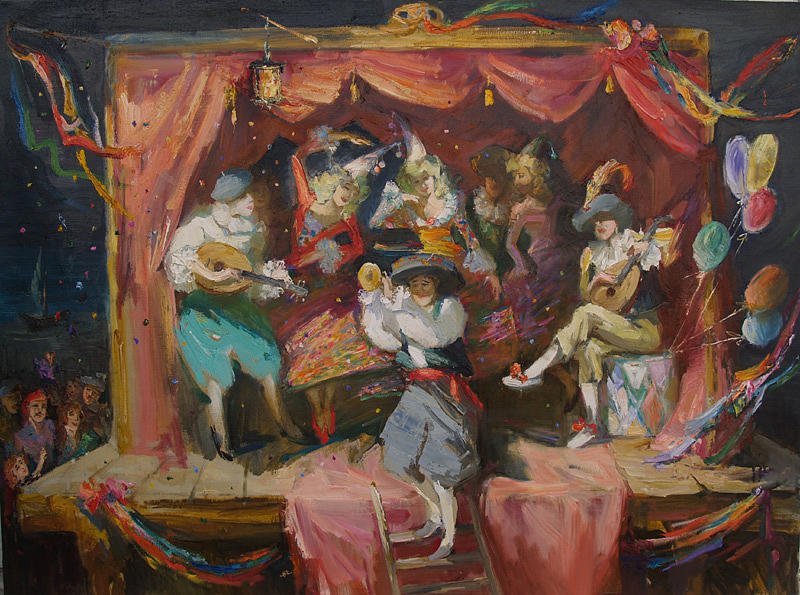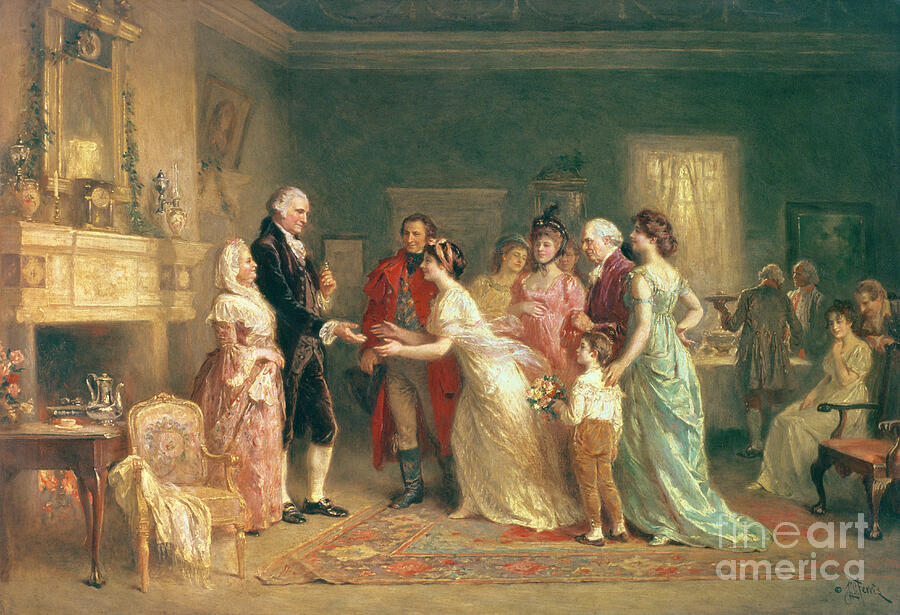A Change of Thrones
“Однажды я вернусь. Да, я вернусь. До тех пор не должно быть никаких сожалений, слез, никаких беспокойств. Просто идите вперед во всех своих убеждениях и докажите мне, что я не ошибаюсь в своих.
One day I'll be back. Yes, I'll be back. Until then, there should be no regrets, tears, no worries. Just go ahead in all your beliefs and prove to me that I'm not mistaken in my own.”
Konstantin’s farewell to a small girl, unverified sources say she was Vera Ivanova, as he departed Zhemchug back to Russia, 1823
Three British ships arrived in Lisbon on July 21, 1822. The HMS Beagle docked and out came John VI of Portugal. At the beginning of the Iberian War, he fled for Brazil in 1807 along with most of his court. Even after his realm was spared a better fate than many other after Bruges, he continued to stay in the colony. Discussions with the British about his return, as a show of force against the Bonapartes, but John VI had no intentions of doing so just yet. He was beginning to lift up Brazil to a higher status, but as the Latin American Revolutions began to spread he found it harder to work his neighbors. Britain did not love the idea of the Portuguese court being so far away but tolerated it for the moment. However, in 1819 the assassination of George Don, governor of Gibraltar, by rebels linked to the Spanish crown caused an uproar. Napoleon ordered his brother to withdraw his support of such groups, though France too aided them, and to push back military forces from the city. Some thought this would cause another war, Adam Bain, who orchestrated the assassination, stated, “One man for all of Europe? Perhaps if they wished to throw their lives away for that they should perish.”

Napoleon's Infamous Sinistre Six
Top Row-Adrien Gardet, Maximilien Colbert
Middle Row- Adam Bain, Serge Mallet, Quentin Brassard
Bottom- Guillaume MontgomerySpain did not learn her lesson and the Portuguese border became active once again. In Couto Misto, Spanish soldiers, off duty, got into a fight with Portuguese soldiers, on duty. Couto Misto was a microstate between Spain and Portugal. After the incident, Joachim I, annex the region. Tensions on the border continued to escalate. Eventually, George IV had enough. He ordered John VI to return to Portugal at the threat of force. To avoid embarrassment and show that the Anglo-Portuguese Alliance was still strong, he claimed that he was homesick and his business in Brazil was finished. He tried to leave his son, Peter, in Brazil but the British demanded he return as well or face this issue again. There were a growing liberal and republican movement in Portugal. To avoid civil unrest, John VI appeased them by adopting a constitution ending Portuguese absolutism. There were many supporters of absolutism and feared a repetition of the Revolution that led to Napoleon’s rise in France. It is perhaps the shifting political structure in Brazil that led Laurent to take refuge in Portugal after his republic fell. Laurent had a negative view of the nation, calling it “a failed Latin Britain that granted fewer rights than the Corsican entire empire.”

John VI of Portugal,As Portugal began to reestablish its self in Iberia, George IV moved to court a new royal household in Scandinavia. Charles XIII of Sweden died on April 19, 1822. He had no children so adopted a Danish son, Christian August, who took the name Charles XIV of Sweden [1]. Though Danish, he cut ties with his old house and founded his own House of August. He had fought both France and Great Britain during the Napoleonic Wars, but he had done so when Denmark-Norway’s loyalty changed. Now he was concerned with Sweden and Sweden wanted Norway. The Danish would not allow it, but French support may not be guaranteed for them. George Spencer, British Ambassador to the French, reported to George IV that the French would be unwilling to send military units to Denmark-Norway. However, “actions against the Danes would most certainly bring French into the battle.” George IV was willing to risk it, but Grenville could not. He convinced his king that Sweden could take Norway and that they could broker a peace. Emperor George IV began to feel that Grenville was harboring his goals of taking down Napoleon. Prime Minister Grenville felt that George IV was rushing them into a war that would bring the empire to ruin. The Whigs had been in power for almost a decade and the populace began to turn.
Charles XIV had other issues besides Norway. His adoptive fathers’ predecessor, Gustav IV, was ousted by military officers due to his failures in the Finnish War in 1809 that saw Sweden lose Finland. There were still those who support Gustav IV and his family. Charles XIII’s wife, Charlotte, was a staunch Gustavian. Her husband did not think much of her views but she did visit the exiled royals made it very clear to the former prince of Sweden, Gustav, that he was meant to be next in line for the throne. Charles XIV needed an heir but first, he needed a queen. One was offered during his coronation on March 5, 1822. George IV did not attend but he sent a representative of the British crown, Princess Charlotte of Wales [2]. When news of their engagement reached Napoleon, he suffered a small stroke.

Charles XIV of SwedenGeorge IV feared his family losing control of the throne of Britain, but Grenville tried to assure him that this would not happen. As heir, Charlotte would become Queen of the United Kingdom. As Demark was under Salic Law any daughters they had could not assume the throne. Either Demark would have a common king, a son of Charles and Charlotte, or separate under another queen. Grenville’s remark of, “there is a chance she could die first,” set off a rant by George IV reminding many bystanders of his father’s madness. George IV’s ego had also been present by the mental defect of his father and this began to worry many.

Queen Charlotte of SwedenAlexander II was worried about his Western border with Sweden. He began performing military drills in Finland. During an exercise, his horse became enraged and began to charge. He attempted to calm him but was kicked off and hit the ground hard. He began to slip in and out of a coma. Konstantin was recalled to St. Petersburg. His brother passed on June 1, 1823. Having no children, the throne passed to Konstantin who was hesitate to take it, but for the good of Russia, he became Emperor Konstantin I.
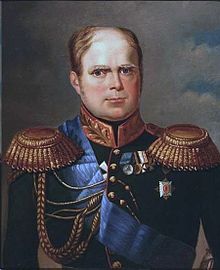
Emperor Konstantin IRemembering his times in the New World he made sure that grain was stored just in case famine ever hit. He also made sure the nobles were not abusing their serfs. He had witnessed the incompetence of many in their American holdings. Konstantin I was seen earlier on as a liberal-minded monarch, but his policies would not affect his own rule. He undid agreements made between his brother and the Russian Orthodox Church. Some of these reforms were unpopular with nobles and military, but those who had served with him in the colonies trusted his knowledge [3].
His most crucial opinion and the one the World held its breathe for was on France. Carlo Andrea Pozzo di Borgo, who became the French Ambassador to Russia, wrote that “the new Tsar is an unhappy one and his loyalties are unsure. He has been gone for too long.” Napoleon who was still recovering from his stroke trusted Borgo to keep Russia happy and in his camp. The marriage between Charles and Charlotte was not favorable, but now he had to focus on his own family. His son was only twelve, but as the only heir to the French Empire, he needed to find a suitable bride soon. He had an ideal candidate, but when Ney was told of his plan he called it mad. “This world will erupt in flames if you do,” he told his emperor, but Napoleon choice to go through with it. “This world perhaps, but not the New.”
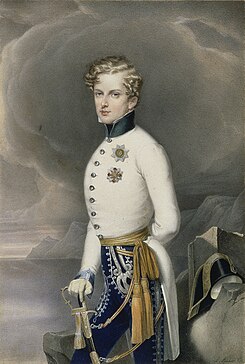
Napoleon II, King of Rome1-Charles Augustus does not die in 1810
2-Princess Charlotte does not marry Leopold I as he is part of the COR
3-Russian military officers never go to France and take up Revolutionary ideas as they do due to their alliance with France
One day I'll be back. Yes, I'll be back. Until then, there should be no regrets, tears, no worries. Just go ahead in all your beliefs and prove to me that I'm not mistaken in my own.”
Konstantin’s farewell to a small girl, unverified sources say she was Vera Ivanova, as he departed Zhemchug back to Russia, 1823
Three British ships arrived in Lisbon on July 21, 1822. The HMS Beagle docked and out came John VI of Portugal. At the beginning of the Iberian War, he fled for Brazil in 1807 along with most of his court. Even after his realm was spared a better fate than many other after Bruges, he continued to stay in the colony. Discussions with the British about his return, as a show of force against the Bonapartes, but John VI had no intentions of doing so just yet. He was beginning to lift up Brazil to a higher status, but as the Latin American Revolutions began to spread he found it harder to work his neighbors. Britain did not love the idea of the Portuguese court being so far away but tolerated it for the moment. However, in 1819 the assassination of George Don, governor of Gibraltar, by rebels linked to the Spanish crown caused an uproar. Napoleon ordered his brother to withdraw his support of such groups, though France too aided them, and to push back military forces from the city. Some thought this would cause another war, Adam Bain, who orchestrated the assassination, stated, “One man for all of Europe? Perhaps if they wished to throw their lives away for that they should perish.”
Napoleon's Infamous Sinistre Six
Top Row-Adrien Gardet, Maximilien Colbert
Middle Row- Adam Bain, Serge Mallet, Quentin Brassard
Bottom- Guillaume Montgomery

John VI of Portugal,
Charles XIV had other issues besides Norway. His adoptive fathers’ predecessor, Gustav IV, was ousted by military officers due to his failures in the Finnish War in 1809 that saw Sweden lose Finland. There were still those who support Gustav IV and his family. Charles XIII’s wife, Charlotte, was a staunch Gustavian. Her husband did not think much of her views but she did visit the exiled royals made it very clear to the former prince of Sweden, Gustav, that he was meant to be next in line for the throne. Charles XIV needed an heir but first, he needed a queen. One was offered during his coronation on March 5, 1822. George IV did not attend but he sent a representative of the British crown, Princess Charlotte of Wales [2]. When news of their engagement reached Napoleon, he suffered a small stroke.

Charles XIV of Sweden

Queen Charlotte of Sweden

Emperor Konstantin I
His most crucial opinion and the one the World held its breathe for was on France. Carlo Andrea Pozzo di Borgo, who became the French Ambassador to Russia, wrote that “the new Tsar is an unhappy one and his loyalties are unsure. He has been gone for too long.” Napoleon who was still recovering from his stroke trusted Borgo to keep Russia happy and in his camp. The marriage between Charles and Charlotte was not favorable, but now he had to focus on his own family. His son was only twelve, but as the only heir to the French Empire, he needed to find a suitable bride soon. He had an ideal candidate, but when Ney was told of his plan he called it mad. “This world will erupt in flames if you do,” he told his emperor, but Napoleon choice to go through with it. “This world perhaps, but not the New.”

Napoleon II, King of Rome
2-Princess Charlotte does not marry Leopold I as he is part of the COR
3-Russian military officers never go to France and take up Revolutionary ideas as they do due to their alliance with France

/https://public-media.smithsonianmag.com/filer/c1/73/c1736851-7861-4c00-8f99-0fc1d1690744/6264515826_bd57497557_b_resize.jpg)
/https://public-media.smithsonianmag.com/filer/dc/55/dc554a1b-6500-452f-98e4-d4cc8f783b72/robert-smalls.jpg)
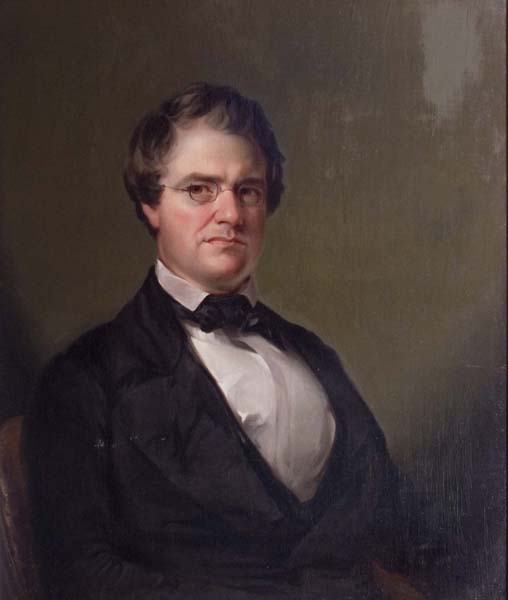



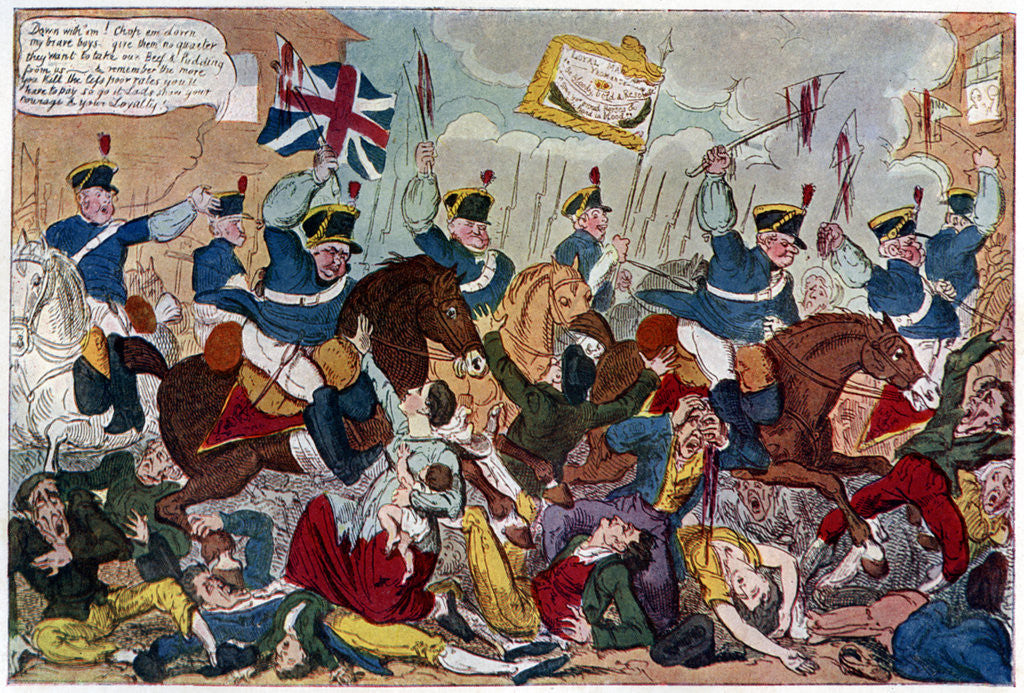


.jpg)







